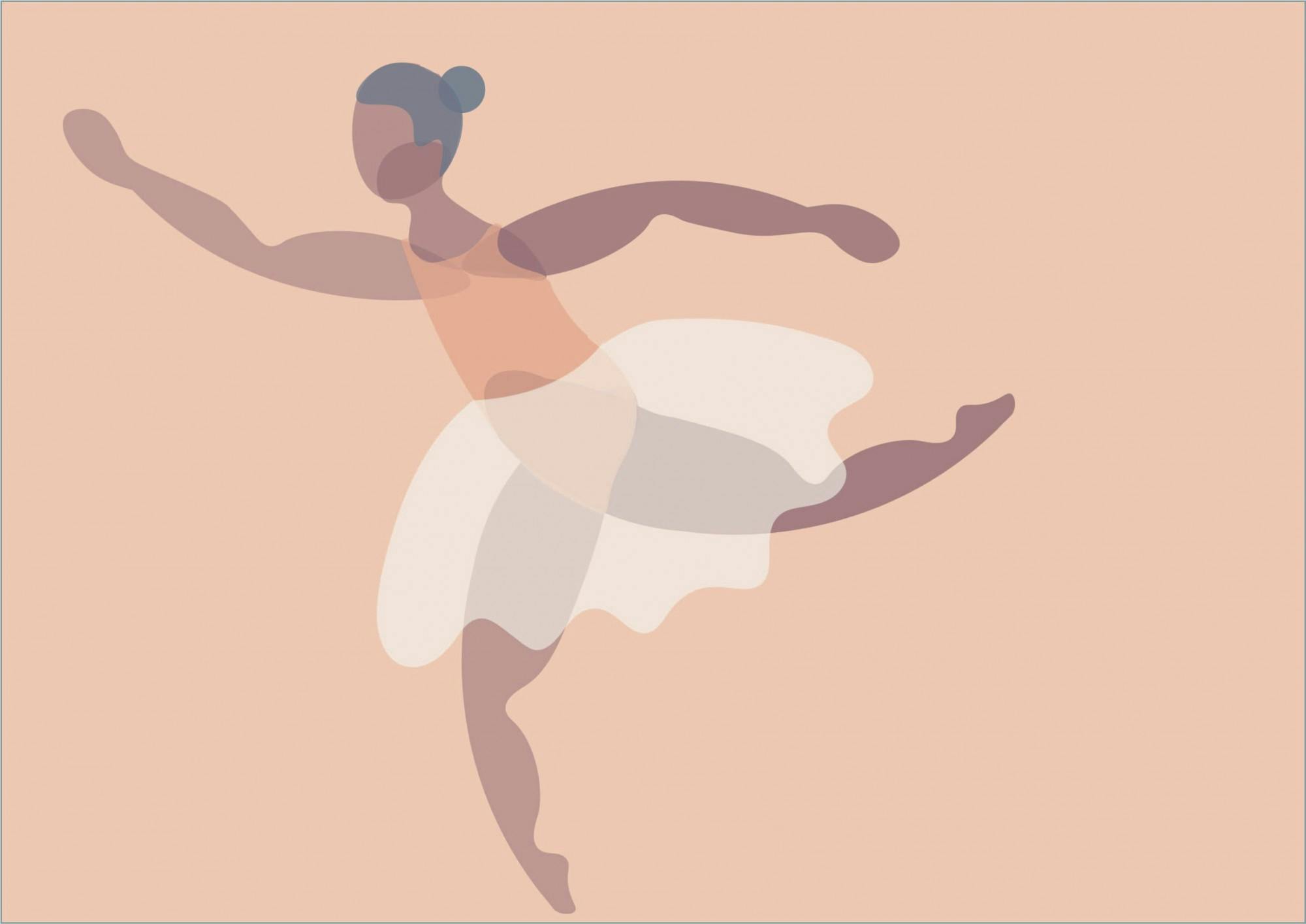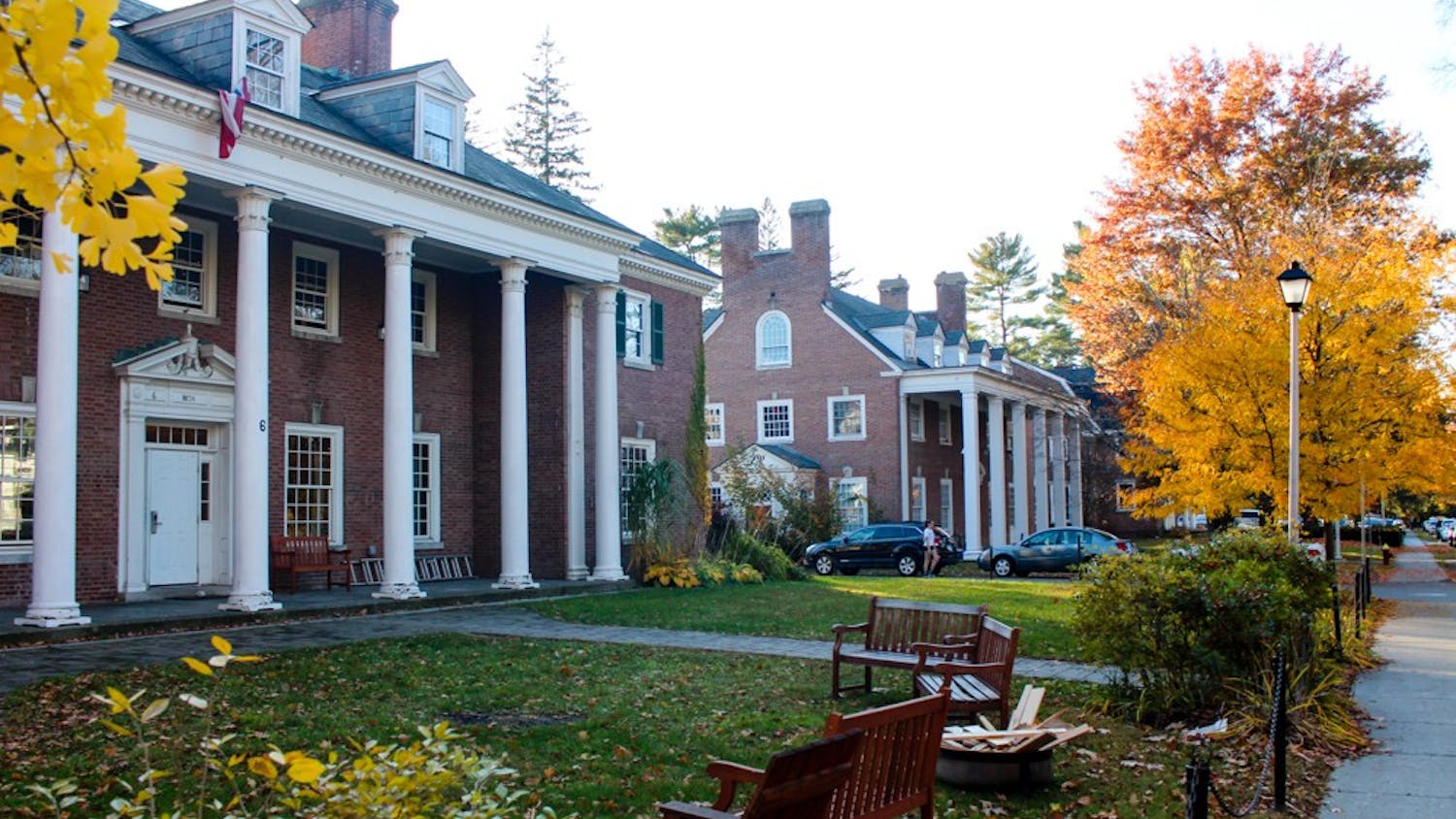Now seems like an odd time for a dance club to be having a renaissance. However, the Dartmouth Classical Ballet Theater, a student group dedicated to offering free, inclusive dance classes, has emerged from this unusual year leaping higher than ever. Having extended its reach across the student body (with beautiful port de bras), DCBT is starting this year en pointe.
Before this fall, DCBT kept a relatively low profile on campus. Though it has existed for a few years, the group comprised only a small number of students. Rachel Hsu ’23 assumed the presidency by way of being one of the club’s only active members, but she quickly became determined to make DCBT’s presence known to the student body.
“I noticed that other people weren’t showing up to the classes, not necessarily because they didn’t want to, but because they didn’t know about [DCBT],” Hsu said. “I want to make sure that when there are opportunities, people know where they are and how to find them.”
Hsu spent the summer rebuilding DCBT’s infrastructure, securing recognition from the Council on Student Organizations and recruiting members of the student dance community to teach open, drop-in Zoom classes.
When rebuilding DCBT, Hsu and her fellow officers envisioned the dance studio primarily as a learning space. Each week, DCBT offers ballet classes for dancers with different levels of experience, in hopes of including both seasoned dancers and brand new ballet enthusiasts.
“[DCBT] is a really good space that unites dancers,” said Pam Pitakanonda ’22, a student ballet instructor. “There have always been people who love ballet and people who want to try it or want to grow in ballet, but there’s never really been a space for it on campus.”
Hsu’s drive to promote DCBT to the larger Dartmouth dance community stems from her belief in the importance of consistent technical training, which is critical for avoiding dance-related injuries. Between fast-moving academic terms and busy performance schedules, Dartmouth dancers often find that they lack the time to focus on building and maintaining technical skills. Having gone without consistent conditioning for several months during her freshman year at Dartmouth, Hsu sustained a major dance-related injury for the first time in her life last winter.
“It really drew my attention to the importance of consistent training and conditioning,” Hsu said of her injury. “I wanted to do something about it.”
Hsu recognized that as president of DCBT, she was in a unique position to provide the Dartmouth dance community with a dedicated training studio. Because DCBT does not hold public performances, opting instead for an entirely instruction-based approach, Hsu saw the club’s potential to complement student dance groups, providing a space for students to gather and practice technique and conditioning together.
DCBT is different from most dance groups on campus in that dancers are not required to audition or make a regular time commitment.
“There’s a lot of pressure to be part of an audition-based group that performs three times per quarter, but that’s not what everyone wants,” said Emily Hester ’23, who teaches beginner, intermediate and advanced ballet classes. “DCBT expands the community to people who want to continue dancing, but don’t want to commit a lot of hours to preparing for performances.”
The flexible, drop-in nature of classes also provides an outlet for students with no prior dance experience to learn ballet. By offering free classes that dancers can take on their own time, DCBT seeks to break prohibitive socioeconomic barriers to dance and help students acquire ballet experience equitably.
“One of the biggest things we’re trying to spread about DCBT is that literally anyone can come,” said social media manager Samantha Brant ’23. “It doesn’t matter if you’ve never done ballet in your life; we have beginner classes. We have higher-level classes for people who have been training for 15 years, too.”
DCBT classes are being taught over Zoom this term, and although Dartmouth dorm rooms aren’t ideal dance spaces, Brant hopes the remote format will help foster a non-judgmental, comfortable environment for beginner dancers to try ballet. After all, it’s easier to dance like no one’s watching when you’re in your own space.
“When something’s over Zoom and I don’t know if I’m going to be good at it or not, I can always just end the call,” Brant said. “I feel like knowing that makes it easier for people to come.”
Aside from making the studio less intimidating for new dancers, virtual classes have allowed Dartmouth students to explore the world of dance beyond Hanover. Collaborating with Wild Things Dance Workshops, an open-style drop-in class series also managed by Hsu, DCBT dancers have had the opportunity to learn from instructors around the world. Because travel costs are no longer prohibitive expenses for the dance groups, classes this term are being taught by instructors everywhere from New York to Australia to Taiwan.
Despite the challenges virtual learning poses to the arts, DCBT has seized the moment, expanding Dartmouth’s dance community to encompass new corners of the globe and campus alike. At a moment when normal rehearsals and performances are impossible, DCBT offers a productive and engaging way for dancers to practice their craft. At a moment when feelings of isolation are all the more present, DCBT opens a community to artists old and new.
Each week, DCBT sends a schedule of drop-in Zoom classes on the campus events listserv, open to anyone and everyone interested in ballet.
“When we say everyone is welcome, we really mean it,” Hsu said. Whether you love to perform with student groups or prefer to jam out alone in your dorm, Dartmouth Classical Ballet Theater aims to make space for every member of the College community.




